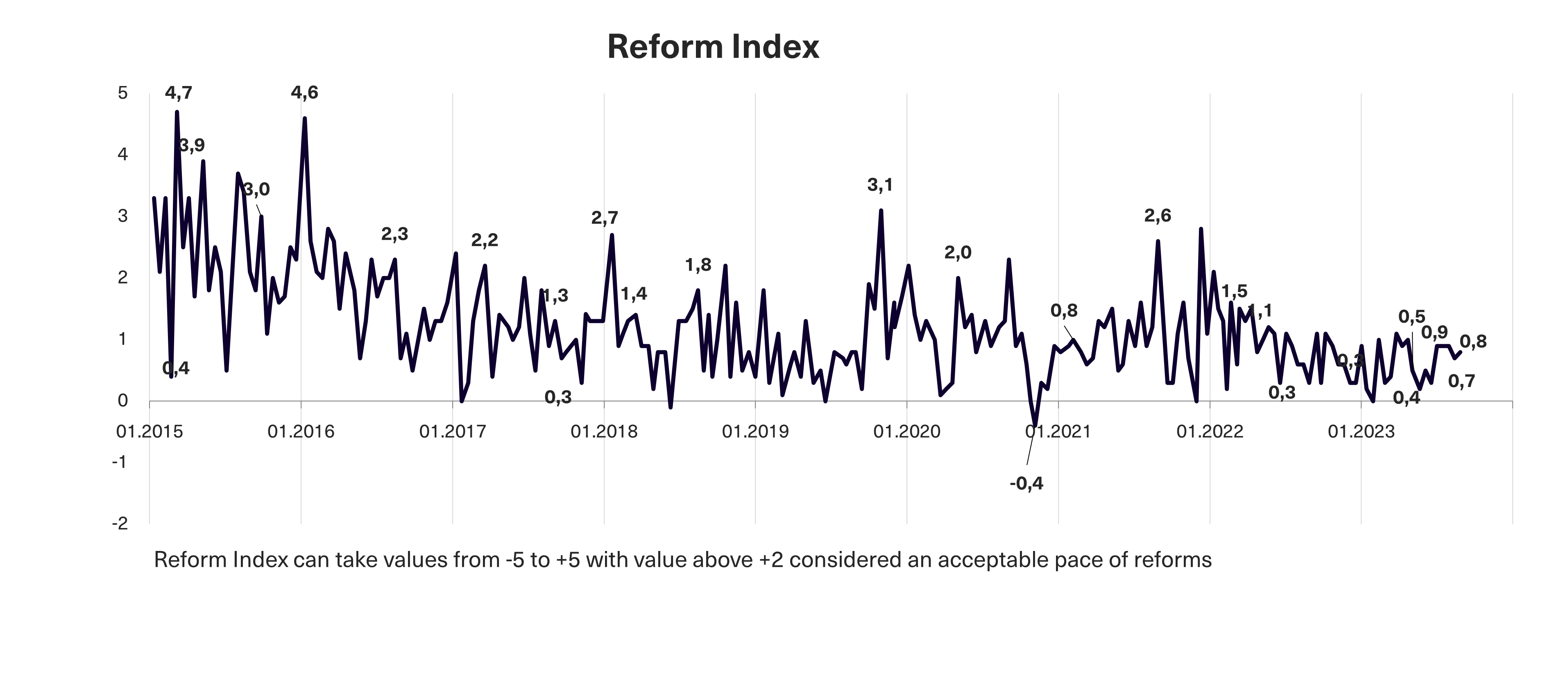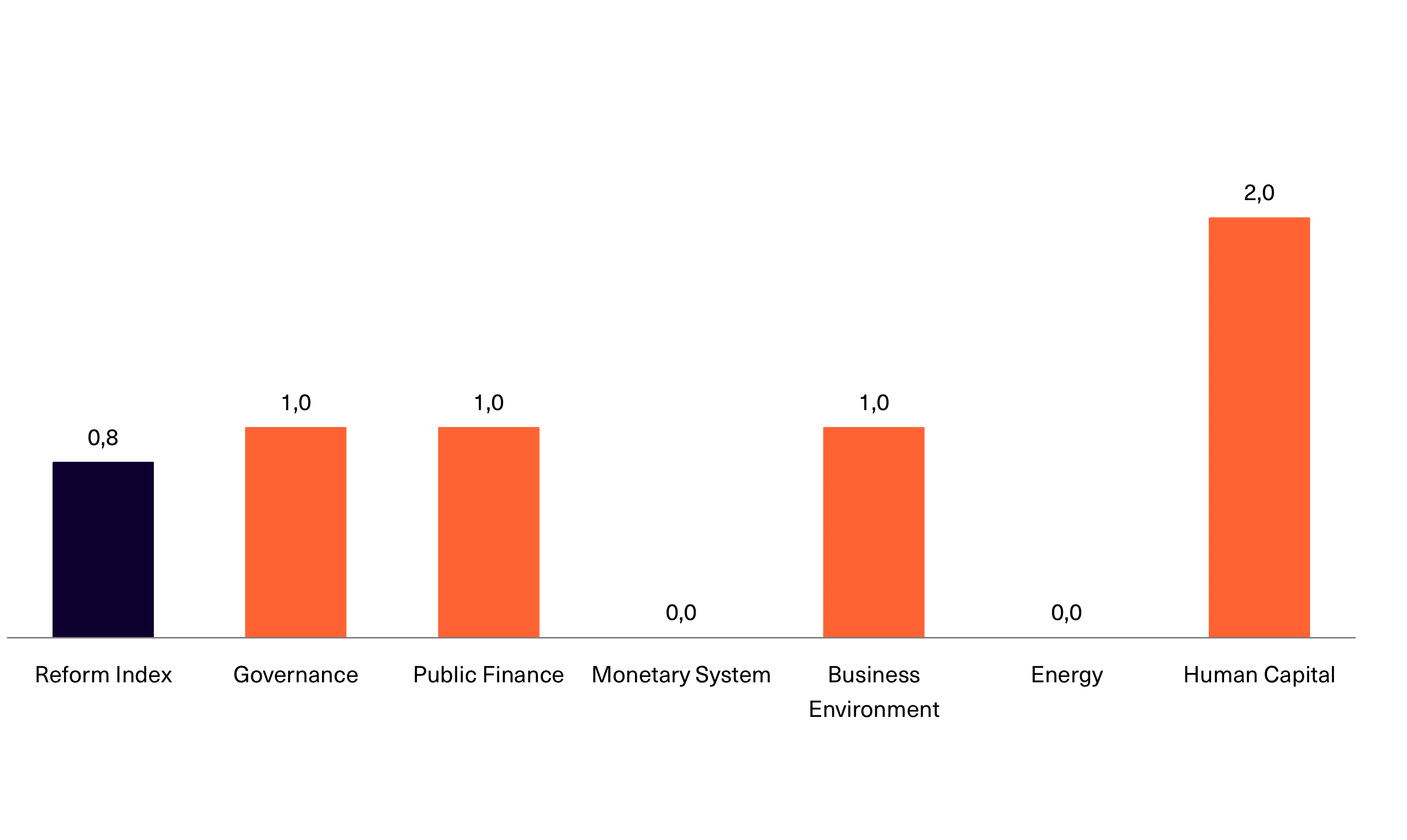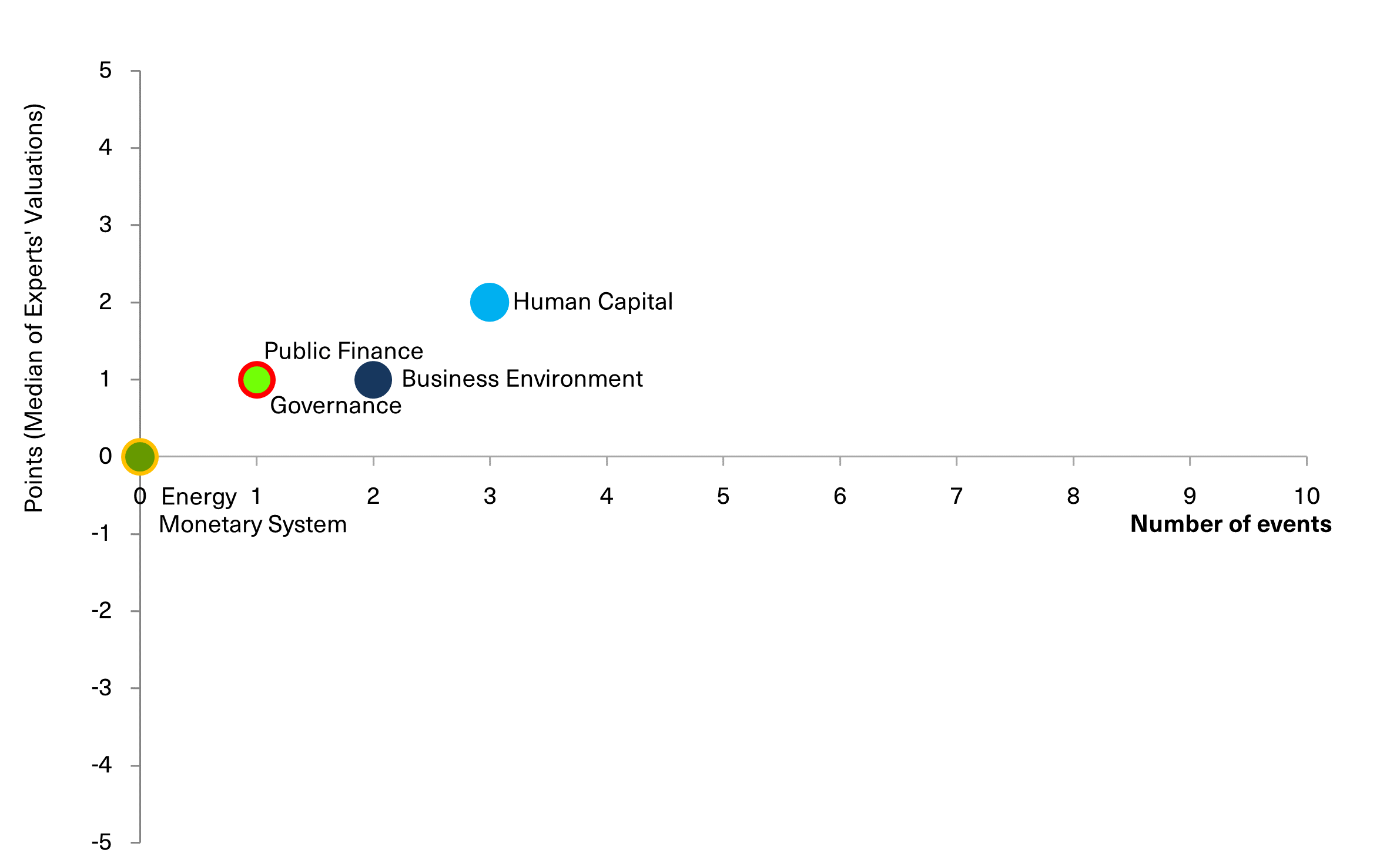The Reform Index’s 219th issue covers the period from August 14 to August 27 and incorporates seven reforms. However, none of them achieved a rating of +2 points, which, in our opinion, distinguishes significant reforms from less important ones. The overall rating of the Reform Index is +0.8 points on a scale ranging from -5 to +5 (in the previous issue, its value was +0.7 points).
Chart 1. Reform Index Dynamics
Chart 2. Reform Index and its components in the current round
Law restricting amendments to the state budget, +1 point
In mid-August, Ukrainian President Volodymyr Zelensky signed Law 3278-IX, which amends the Budget Code and stipulates that people’s deputies can consider changes to the state budget only if approved by the Ministry of Finance. However, there is an exception to this rule during martial law, as MPs retain the right to review expenditures for the security and defense sector.
Another important provision of the law is the restoration of medium-term budget planning starting from January 1, 2024. Under such planning, the government submits a Budget Declaration, which is a strategic document for medium-term budget planning defining the principles of budgetary policy and ensuring predictability of funding for the three years following the current one.
Furthermore, the law also provides for the resumption of developing the Public Debt Management Strategy in 2023. According to the adopted changes, the maximum volume of state guarantees granted by the Cabinet of Ministers cannot exceed 3% of the planned revenues of the state budget’s general fund from 2023 to 2028. However, this volume will not include state guarantees granted based on international agreements, as the state budget law will determine the restrictions on such guarantees.
Information about the Reforms Index project, the list of Index experts and the database of the regulations assessed are available here.
Law on changes in the selection of judges of the Constitutional Court of Ukraine, +1 point
The reform of the Constitutional Court of Ukraine (CCU) is one of the requirements for the beginning of negotiations on Ukraine’s accession to the EU. The law, which went from registration to signing by the President between May and August 2023, was created in response to the Venice Commission’s comments on the previous Law No. 2846-ІХ. The latter aimed to improve the procedure for selecting candidates for the position of Constitutional Court judges in Ukraine but effectively introduced an imperfect procedure. The Advisory Expert Group (the body responsible for selecting candidates for the CCU judge positions, hereinafter referred to as AEG) did not have a decisive vote. This created risks of appointing only candidates loyal to the government to the positions of CCU judges.
According to the updated law, the Advisory Expert Group will exist during the transitional period, which is six years from the date this law takes effect. The Advisory Expert Group will consist of six experts: one appointed by the President, one by the Verkhovna Rada, one by the Council of Judges, one by the Cabinet of Ministers based on the proposal of the Venice Commission, and two appointed by the international organizations that have been providing technical assistance to Ukraine in the field of constitutional reform and the rule of law for a significant time. The term of an expert’s mandate is two years, meaning there will be several rotations of experts over the course of six years.
The changes also strengthen the powers of the Advisory Expert Group: candidates receiving a negative opinion from the body will be eliminated from the competitive selection process.
If the need for the Advisory Expert Group persists beyond the transitional period of six years, this will be determined by a separate regulatory act.
Chart 3. Value of Reform Index components and number of events
Reform Index from VoxUkraine aims to provide a comprehensive assessment of reform efforts by Ukraine’s authorities. The Index is based on expert assessments of changes in the regulatory environment in six areas: Governance, Public Finance, Monetary system, Business Environment, Energy, Human Capital.
With the support of
Attention
The author doesn`t work for, consult to, own shares in or receive funding from any company or organization that would benefit from this article, and have no relevant affiliations







